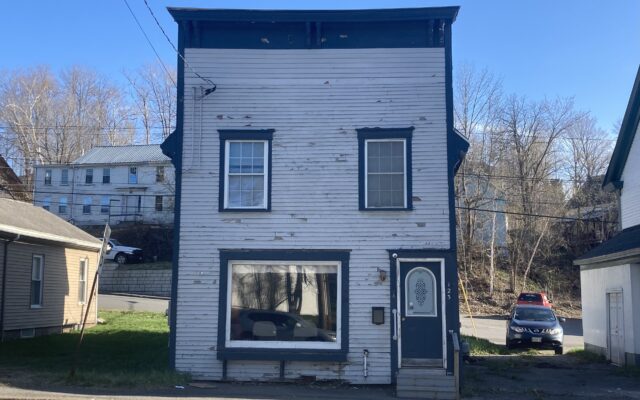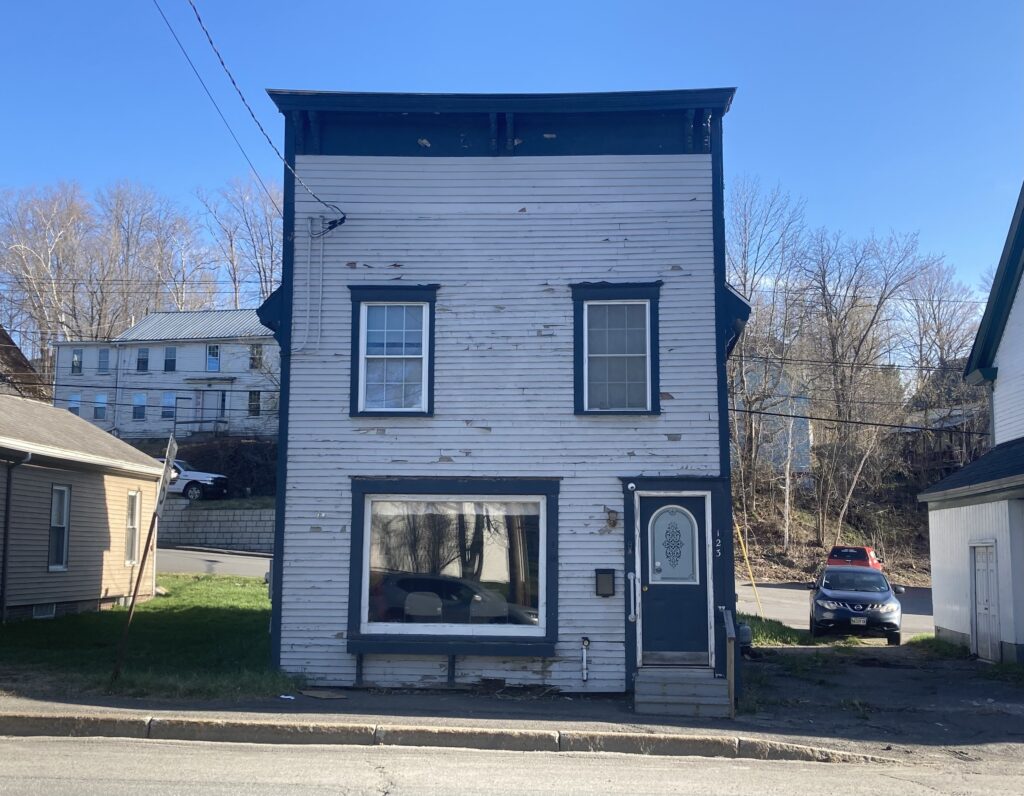
Some Dover-Foxcroft residents don’t want an opioid treatment center in town
DOVER-FOXCROFT — A meeting about a proposed opioid addiction treatment office in Dover-Foxcroft erupted into a debate Thursday over whether such a facility would help or hurt the town.
About 60 residents, some of whom were at odds over the proposed clinic in late April, packed a Dover-Foxcroft Planning Board meeting to debate whether the town’s drug problem is big enough to merit such a facility.
As Maine’s drug crisis worsens and rural areas continue to lack accessible treatment options, this small town is facing a moral and municipal dilemma. Townspeople are weighing whether to treat community members who have opioid use disorder against the risk of exposing children to those seeking treatment and potentially changing the character of their downtown.
Medical professionals and the town’s police chief have said opioid treatment is a significant need not being met by county medical facilities. Some residents agree the services are essential, while others worry the center’s location could increase crime and lead future investors and families to turn away.
From January to December 2021, Maine saw 632 fatal drug overdoses, 16 of which were not confirmed, according to the Maine Drug Data Hub. During that time frame, Piscataquis County had 11 confirmed and suspected overdose deaths compared with three in 2019.

POTENTIAL SITE — An opioid addiction treatment office is proposed for downtown Dover-Foxcroft. The property at 123 East Main St. is pictured Friday.
Although there were fewer cumulative overdose deaths in Piscataquis compared to neighboring Penobscot and Somerset counties, medical professionals have argued that people still die while fighting addiction. Many of them travel to Bangor and other areas for treatment.
Rosemary Boudreau of Provider Services, a Skowhegan-based office that prescribes medication for opioid use disorder to about 120 patients, wants to open the clinic along East Main Street. She says more than 600 overdose deaths in Maine last year are serious and warrant more treatment services.
Officials cut the session off after two hours because it went far beyond the purview of the planning board, who are not medical experts, Chairman Chris Maas said.
“What’s clear to me is that this is a much bigger discussion that this community needs to be engaged in,” he said.
Boudreau, who has worked in mental health and substance use for more than 30 years, would run the clinic, scheduling and connecting patients with counseling, case management and other services. Janet Zalanskas, a psychiatric nurse practitioner, would meet with patients monthly, complete assessments and prescribe Suboxone.
Suboxone is the brand name of a medicine that contains buprenorphine and naloxone. Buprenorphine is an FDA-approved medication to help those addicted to opioids get through withdrawal safely.
The facility would monitor patients through on-site urine drug screening and assess laboratory results.
The clinic is not supported by taxpayers and accepts cash only, meaning the provider isn’t held to 20-minute appointments. Though some questioned the cash-only practice, Boudreau said part of people’s recovery is investing in their sobriety, and insurance requires a lot of paperwork that isn’t focused on the patient. A patient would pay about $170 per month, she said.
The four-year-old Skowhegan practice treats many patients who became addicted to opioids after doctors prescribed them post-surgery or after an accident, Boudreau said. Without proper education and dose reduction, they ran out of medication and turned to street drugs to handle withdrawal.
“The reality is this is a societal problem that we’re dealing with,” Police Chief Matt Grant said, adding the department responded to an overdose on the outskirts of town recently. “The resources need to be made available.”
Grant said if the clinic is properly licensed and enforced, he doesn’t foresee many problems. The downtown location, with limited street parking, wouldn’t allow patients to congregate, he said.
Dover-Foxcroft resident Richard McCue, who abuts the proposed clinic, wondered if there is a great enough need for such services and whether crime and loitering might increase. He acknowledged the need for opioid addiction treatment services, but he and other townspeople still think the clinic should be near other medical facilities in town.
Some residents questioned Boudreau’s history as program manager at a former Hallowell-based clinic that offered Suboxone and abruptly closed in 2016. The Maine attorney general’s office investigated the clinic for fraud and ordered it to repay more than $300,000 to the state, according to a Bangor Daily News report.
Boudreau said she reported the clinic’s co-owner responsible for fraud at the time and is open to answering questions about what happened.
“We’re a small community. Everybody knows almost everybody else,” Barbara Clark said.
Clark worries about the clinic’s proximity to the Dover-Foxcroft United Methodist Church, which hosts a summer vacation Bible school. The 40-50 children playing on the church’s lawn might be exposed to the clinic and its patients, and another church is located nearby, she said.
Erin Chandler, a family physician who used to work at Northern Light Health’s primary care practice in Milo, called attention to the lack of medical staff in Piscataquis County.
During her tenure, patients with opioid use disorder would be “sandwiched in between” other appointments, but their recovery should integrate compassionate care, counseling and resources to help them find jobs and give their lives purpose again, she said.
Michelle Fagan, youth services librarian at Thompson Free Library, works with kids whose parents are in recovery.
“I think the stigma behind all of this is really, really tough,” she said. “In a community that sometimes has been known to say, ‘Not in my backyard’ — it’s in your backyard, it’s walking down Main Street, it’s at McDonald’s, it’s at the library. We need to help these people.”
The conversation will continue when the planning board meets again at 6:30 p.m. June 2 at the Dover-Foxcroft Municipal Building. Boudreau and Zalanskas will address questions and concerns.